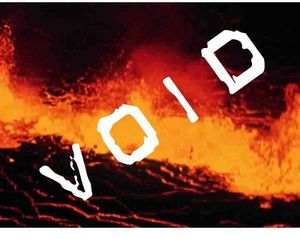10.12.2012 | 11:21
Creation.com and hell
 Ég rökręddi stuttlega viš www.creation.com um hvort aš Biblķan kennir helvķti ķ žeim skilningi aš Guš mun kvelja syndara aš eilķfu. Žeir birtu ašeins eina athugasemd frį mér af žó nokkrum sem var óneitanlega svekkjandi. Hérna er mitt svar viš grein frį www.creation.com sem į aš vera svar viš minni afstöšu sem er aš helvķti er ekki til. Mķn afstaša endurspeglast vel ķ oršum Pįls ķ Rómverjabréfinu 6:23 sem eru aš laun syndarinnar er dauši.
Ég rökręddi stuttlega viš www.creation.com um hvort aš Biblķan kennir helvķti ķ žeim skilningi aš Guš mun kvelja syndara aš eilķfu. Žeir birtu ašeins eina athugasemd frį mér af žó nokkrum sem var óneitanlega svekkjandi. Hérna er mitt svar viš grein frį www.creation.com sem į aš vera svar viš minni afstöšu sem er aš helvķti er ekki til. Mķn afstaša endurspeglast vel ķ oršum Pįls ķ Rómverjabréfinu 6:23 sem eru aš laun syndarinnar er dauši.www.creation.com
CMI affirms that the human soul/spirit, once it comes into existence at conception, never ceases to exist. We define spiritual death as eternal separation from God, not as an end to the spirit’s existence. This makes sense in light of the statements that God is the author of life and apart from Him there is no life. A spirit eternally cut off from Him, then, would be dead by definition.
To say that the soul never ceases to exist is to repeat the lie of the devil when he said to Eve, “surely you will not die”. The Bible says again and again that the soul that sins will die and never does it say that we are immortal. The Bible actually states clearly that only God has immortality,(1 Timothy 6:16). God certainly is the author and source of life so separation from God is death or to no longer exist.
www.creation.com
Resurrection of the Righteous and Unrighteous
At the resurrection, the actual bodies of everyone who lived, righteous and unrighteous, will be raised (Acts 24:15). The Bible indicates that the believers’ resurrection bodies will be like the bodies we have now in some important ways; they will be physical bodies (1 Corinthians 15), we will be able to eat and drink (Luke 24:41–43), and so on. But they will be indestructible and glorified bodies. We are not given any details about the bodies the unrighteous will receive, but if they are analogous to the resurrection bodies the righteous receive at all, they will be able to endure their eternal punishment without being destroyed.
Why would we think that the unrighteous would be raised in immortal bodies? Where is the scriptural support for that? Why not just the unrighteous are raised to face judgement and then destroyed in the lake of fire?
www.creation.com
What is the ‘soul’?
Many annihilationists rely on a singular meaning of ‘soul’, but the word’s meaning (Hebrew × Ö¶×¤Ö¶×©× nephesh, Greek ψυχį½µ psychÄ“) depends on context—what word only ever has one meaning regardless of context (even ‘day’)? Indeed, sometimes ‘soul’ means the whole part of man, for example that God breathes into Adam and he becomes a living ’soul’ (nephesh), i.e. he is all ‘nephesh’. But Rachel's death in Genesis 35:18 is equated with her soul (nephesh) departing, and Elijah prays in 1 Kings 17:21 “Return this boy to life, O LORD my God, I pray you, let this child's soul [nephesh] come into him again.” In both cases, the nephesh is something immaterial and distinct from the body that leaves upon death. In the NT (Matthew 10:28), Jesus warns, “And fear not them which kill the body, but are not able to kill the soul (psychÄ“): but rather fear him which is able to destroy both soul and body in hell.” Again, the soul in this context is something not killed when the body is killed.
The Bible uses the word “nephesh” for both men and animals. The easiest way to understand this is that soul or nephesh means a living being. A living being composed of the spirit of God infused into matter. That’s why God says Adam will return to the dust of the earth because he sinned. God specifically says that the access to the tree of life was going to be blocked so Adam could not live forever. Why wouldn’t God tell Adam that if he would sin he live for ever as a spirit in eternal fiery torment?
www.creation.com
What is ‘eternal punishment’?
In this issue, for example, the word for ‘eternal’ (aionios) in Christ’s phrase ‘eternal punishment’ in Mt. 25:46 is the same as in ‘eternal life’ in the same sentence and same grammatical construction. This implies that the punishment of the wicked is just as eternal as the life of the righteous. If not, then we may as well give up trying to understand Scripture. Aionios is also used to describe the eternality of God (Rom. 16:26, 1 Tim. 1:7, Heb, 9:14, 13:8, Rev. 4:9).
The words ‘for ever and ever’ translate an emphatic Greek phrase, 'eis aionas aionon' ("unto the ages of ages"). The twofold use of the term aionas is used in Scripture to emphasize the concept of eternity. And the plural forms (‘unto the ages of ages’) reinforces the idea of never-ending duration. Lutheran scholar R.C.H. Lenski comments:
"The strongest expression for our ‘forever’ is 'eis tous aionan ton aionon', "for the eons of eons"; many eons, each of vast duration , are multiplied by many more, which we imitate by "forever and ever." Human language is able to use only temporal terms to express what is altogether beyond time and timeless. The Greek takes its greatest term for time, the 'eon', pluralizes this, and then multiplies it by its own plural, even using articles which make these eons the definite ones. "
[R.C.H Lenski, Revelation (Minneapolis: Augsburb, 1961), p.438.]
This same emphatic construction is used to speak of the never-ending worship of God in Revelation 1:6, 4:9, and 5:3. It is also used to describe the eternality of God in Revelation 4:10 and 10:6. We cannot emphasize too strongly that this phrase shows beyond doubt that the physical torment of the wicked is forever and ever and ever.
Why not just the opposite of eternal life, eternal death? Or even more specific eternal destruction like we see in 2. Thes 1:9?
There are also good arguments that the words used for eternity should not be translated like that, see: www.what-the-hell-is-hell.com/HellStudy/forever.htm
Yet another point is that in the Old Testament, the word eternity is used many times for events that have already passed.
www.creation.com
The use of the words "day and night" (NASB) is also significant (in the phrase "they have no rest day and night" [NASB]). Gomes comments: "The expression 'day and night' is indicative of ceaseless activity. This same phrase is used of the never-ending worship of God in Revelation 4:8 and 7:15. By juxtaposing the words 'day and night' with 'forever and ever' in 20:10 [another passage dealing with eternal torment], we have the most emphatic expression of unending, ceaseless activity possible in the Greek language."
The problem here is that here the Bible is talking about those who receive the mark of the beast here on earth will not have any rest. This is not a description of what the fate of the wicked but of those who receive the mark of the beast which is a prophecy about events that will happen on this earth before the second coming of Jesus.
www.creation.com
Note also, that if annihilation is the fate of the wicked, they indeed would experience "rest". But our text in Revelation 14:11 specifically says they have no rest forever. Clearly, then, the language of Revelation 14 emphatically points to the eternal, conscious suffering of the wicked.
We really shouldn’t be basing doctrines on a few verses in the book of Revelation because it’s highly symbolic and very easy to misunderstand.
www.creation.com
Also, the word for the eternal torment in Revelation 14:11 is basanizo, which means to vex with grievous pains, and is used to describe labour pains in Rev. 12:2 and the centurion's sick servant "tormented" by palsy in Matthew 8:6.
How is the soul ‘destroyed’?
One of the most common arguments for annihilation is that the Bible teaches the souls of the wicked are destroyed (Matthew 10:28, for example). It is argued that the destruction of the soul must equal annihilation. But it is far more common for ‘destruction’ to refer to the irreversible ruining of something, where it goes on existing in a hopelessly broken state (if you’re interested in what a Greek grammarian says about the meaning of the Greek apollumi, please see http://www.billmounce.com/blog/02-23-2009/does-apollumi-mean-%E2%80%9Cdestroy%E2%80%9D). The range of apollumi means that while sometimes it refers to something’s total destruction, we must consider the entire context of Scripture’s teaching to determine whether it means ‘annihilate’ in the context of what happens to those who die outside of Christ.-
There are quite a few verses that talk about being destroyed in a way that the person will no longer exist, here are a few: Psalm 115:17, Psalm 146:4, Psalm 6:5, Isaiah 38:18.
The example we are giving about the fate of the wicked is Sodom and Gomorah, they are our example of eternal fire and what do we see there? We see the two cities were destroyed by fire and are now no longer exist.
Jude 6-7
And the angels which kept not their first estate, but left their own habitation, he hath reserved in everlasting chains under darkness unto the judgment of the great day. Even as Sodom and Gomorrah, and the cities about them in like manner, giving themselves over to fornication, and going after strange flesh, are set forth for an example, suffering the vengeance of eternal fire.
www.creation.com
Is annihilationism practically tenable?
Our sin is against an infinite holy God, so requires infinite punishment. The only way a finite creature can be punished infinitely is if his punishment is of infinite duration.
Annihilationist views understate the extreme seriousness of sin against the holiness of God. This has dire flow-on effects for other doctrines. E.g.: Christology and soteriology (the doctrines of Christ and Salvation): why does Christ need to be fully divine? Because a mere creature could not take upon himself the infinite punishment we deserve, but only the infinite God himself. The early Church Fathers and Anselm made much of the connection between these aspects of hamartiology (the doctrine of sin), soteriology and Christology. It is no accident that the JW cult denies the Deity of Christ as well as eternal conscious punishment.
This is like someone saying, "I am so high an mighty, that's why anything you do against me is really serious". By doing this God's pride has been hurt so much that His compassion for His creation is no where to be seen and just endless wrath for that insult. No, that makes no sense and just makes God a cruel dictator that lashes out in fury if someone hurts His pride. That's not the qualities of someone noble and loving.
I think a few questions are in order to see how this is not logical.
1. Why would God use His powers to maintain sinners who keep on sinning, keep on hating and keep on begging God to stop tormenting them?
2. Revelation 21 talks about a time when there will be no more pain, suffering or death. How can this beautiful picture of the future be true if there are millions of people being tormented?
3. The place of the lake of fire is on the surface of the earth (Revelation 20:9); how can God create a new heaven and a new earth and still maintain the lake of fire with all the sinners screaming of agony?
4. How could Jesus have paid for the price of sin if the wages of sin is not death but eternal torment; the Bible does not talk about Jesus spending eternity in torment so if the doctrine of eternal torment is true, Jesus didn’t really pay the price of one sinner, let alone millions of sinners.
www.creation.com
All of us, as descendants of Adam, are born with a default destination of Hell; we hate God and His law, and we totally deserve punishment. But God, in his incomprehensible love, sent Jesus Christ, ‘the last Adam’ (1 Corinthians 15:45) to die in our place so that whoever receives Him will be pardoned, since Jesus paid the price for sin. But it is precisely because of this incomprehensible love and sacrifice that I must believe in the reality of eternal punishment for the non-believer. Everyone is without excuse because we all should know from creation that there is a God (Romans 1). Those who reject Christ are even more without excuse because they rejected the revelation of God that they had received (cf. Romans 1).
Think about this, all know that they are going to die, all know they are guilty of lying, stealing, hating, jealousy and other things we know inherently are evil. We also know that God exist from creation but no know has a clue about the eternal life in fire where God torments everyone who sinned and rejected the saviour. It's not something anyone could ever figure out. Also worth noting that Israel did not figure this out and none of the prophets figure this out or told anyone.
www.creation.com
Is eternal punishment unjust?The idea that eternal punishment is unjust presupposes that the offense is temporal; that is, that the offense ended while the punishment endures forever. But the person who dies having rejected God is guilty of an eternal sin, and their souls are eternally ‘bent’ away from God, much like those of the demons, so that they are no longer able to repent. The clearest example of such human depravity I can think of is in Revelation, where Jesus and the saints (I use the term to refer to all believers, not the canonized saints of the Roman Catholic Church) rule over the nations of the earth after the armies of the Beast are destroyed. For 1,000 years the nations are completely free from the influence of Satan and the demons, and they enjoy an incredibly benevolent environment. But the moment that Satan is released, the nations flock to him again, and there is no indication that there was even a single conversion during all that time. This passage is a theodicy (‘defense of God’) for eternal punishment (regardless of what one thinks this Millennium really means or its timing). Scripture teaches that there is a point where the human soul becomes so hostile to God that it will never turn to Him.
If someone has seen an animal like a puppy or a cat being burned alive then that person has an idea of what kind of punishment the eternal doctrine is. We who are not all that loving, just a mere reflection of God’s love, if our heart aches at the sight of mere animals suffering for a few minutes it should be clear that just watching human beings being tormented like that is agony. I see the majesty; holiness and greatness of God much more make God see sinners with pity and compassion against their rebellion against Him. That God would just acknowledge their will to be apart from God and separate them from Him and being separated from the source of life, from the power the maintains everything will cause the sinners to cease to exist.
About the nations free from the influence of Satan, since all are destroyed by the brightness of Jesus coming there are no nations on the earth for those thousand years.
www.creation.com
At this point, a just God has to punish rebellion, or else the sacrifice of Christ has no meaning.
The problem is not with punishment but the eternal torment punishment. The sacrifice of Christ seems quite lacking if the wages of sin for one sinner for a few years is torment for millions of years since Jesus did not go through anything like that, at best a few hours.
www.creation.com
The other option is annihilationism, and this is a more attractive option to some than eternal punishment. But it simply is not taught anywhere in Scripture, and it contradicts the teaching that God created human beings in His image.
But all through scripture it is taught that the wages of sin is death or eternal destruction and not eternal life in torment. Since this is www.creation.com which bases it's whole existance on Genesis but right there we see God saying to Adam and Eve that if they sin they will die. No where in Genesis do we see any hint of eternal torment. So obviously it's taught right there in the first pages of the Bible.
www.creation.com
But it simply is not taught anywhere in Scripture, and it contradicts the teaching that God created human beings in His image. This means we are like Him in some ways, and one of those ways is that we are eternal. We are not eternal in the same way as God; He has no beginning or end, while we have a beginning and no end. So to use mathematical concepts, God is eternal in the way that a line is (geometrically speaking, a true line has no end points—a ‘line’ with end points is a line fragment), with no end in either direction, while we are eternal like a geometrical ray, continuing forever past the starting point.
But the Bible is clear that only God is immortal (1 Timothy 6:16) and that eternal life is a gift from God (Romans 6:23). Again and again in the Bible we see death and destruction as the fate of the wicked but never eternal life in torment so why come to that conclusion? That we are created in the imagine of God doesn't mean we also are immortal. No one would say that we are omnipotent because we are made in the image of God so why should we be eternal because we are made in the image of God? No, the Bible is clear, it says so many times that we are mortal.
www.creation.com
How could we be happy in Heaven knowing our unsaved loved ones are being eternally punished?
Some ask how someone in Heaven could possibly be happy knowing that people were being punished in Hell. This question reminds me of a passage in C.S. Lewis’s The Great Divorce where a man who has gone to Hell confronts his wife, who has gone to Heaven, and accuses her of being a horrible wife because she’s happy even knowing his fate. She replies, basically, that God gave him a choice, and he chose wrongly. To allow the wicked to make the righteous miserable because of the suffering in Hell would allow a sort of tyranny of the unrighteous over the righteous. The imagery she uses is that Hell is smaller than Heaven, such that all the misery of the wretched place would not be enough to dull the singing of a single bird in Heaven. As Lewis puts it, there will be only two types of people: those who say to God ‘Thy will be done’ who will be happy in heaven for eternity; and those to whom God says: ‘thy will be done’, who will be separated from goodness for all eternity (‘depart from me ..’). Much of the torment may be the extreme shame suffered by being excluded from the presence of the source of all that is good, which is still something to be avoided at all costs. It also means that we should make every effort to warn others of their impending fate, as the apostle Peter did on the Day of Pentecost (Acts 2:38–41), that they might also escape (be saved).
This doesn’t answer the question in my opinion. Are we really going to be happy seeing people we love being tormented for all eternity? Would our affection for another human beings be gone so we have no empathy for others? This turns people into the same uncaring monster that the doctrine of hell portrays. It's also impossible to say that someone choose this fate, no one wants to be tormented for eternity, that just goes without saying.
www.creation.com
Doesn’t eternal punishment repel people from Christianity because it doesn’t present a God of love, but of judgment?
People are repelled from Christianity for various reasons, but we cannot remove bits of the Gospel we don’t like. I don’t rejoice in the reality of Hell, and God is “not willing that any should perish” (2 Peter 3:9). I have relatives that are non-believers, so it is not a palatable concept for me. But to take out bits of the Gospel we don’t like is to make Christianity into something else entirely; you may call it what you like, but it isn’t the Gospel of Jesus Christ anymore, when things are removed to make it less offensive. This is the informal logical fallacy called an ‘appeal to pity’. It has no bearing whatever on the case in hand. Many atheists are happy with the idea that they will cease to exist—annihilationist preaching doesn't do anything to make them realize the serious consequences of a Christless life. But Christ spoke more on Hell than on Heaven.
But there is another alternative, to just accept the plain reading of scripture, the wages of sin is death. That there will come a judgement and God will punish all according to their works, some with much pain, and some with little pain. Then they will die; cease to exist because they didn’t want to live with God who is the source of life. To be thrown into the lake of fire and destroyed is an awful fate but it is justice and respecting the choice of the sinner who refused the gift of life and the gift of forgiveness. This way these beautiful verses can come true one day:
Revelation 21
1 Now I saw a new heaven and a new earth, for the first heaven and the first earth had passed away. Also there was no more sea. 2 Then I, John, saw the holy city, New Jerusalem, coming down out of heaven from God, prepared as a bride adorned for her husband. 3 And I heard a loud voice from heaven saying, “Behold, the tabernacle of God is with men, and He will dwell with them, and they shall be His people. God Himself will be with them and be their God. 4 And God will wipe away every tear from their eyes; there shall be no more death, nor sorrow, nor crying. There shall be no more pain, for the former things have passed away.”
www.creation.com
What we should be asking is, "What does God reveal in the Bible about His justice and the fate of the unsaved?" Much of CMI’s message about the primacy of Scripture applies equally to this issue as to evolution/millions of years. That is, do we allow Scripture to speak for itself, or impose our own fallible opinions upon it? The book Refuting Compromise documents examples that are from these otherwise evangelical theologians who cite ‘science’ as their reason for overturning the plain meaning of Scripture.
That's a spirit I sure do appricate but the weight of scriptural evidence can’t be for the doctrine of eternal torment since there isn’t even one verse in the entire Bible that states that doctrine clearly. In the Old Testament we see no hint of this, from Adam to Jesus, no warning about eternal torment. This fact means that God never warned anyone clearly about the wages of sin and was actually lying all the times God said that the wages of sin is death and destruction.
www.creation.com
Conclusion
So should we bow to the scriptural teaching of the doctrine of eternal punishment, or do we allow human 'arguments from outrage' to override the clear teaching of Scripture? Just about all annihilationist arguments tug at the heartstrings and say how the doctrine of eternal punishment makes God a monster/ogre/etc. The rationalisations of Scripture to support annihilationism strongly parallel those used to justify millions of years.
Rather, if we accept the Bible as history, we can make a coherent model of geology by taking into account the global Flood. Similarly, if, as most of the Christian world has believed, the Bible does teach that the unsaved will be tormented eternally, then we should say that it is fit punishment, and build a model from there. It's even more straightforward, because it follows logically from other scriptural principles.
Let’s look at the clear teaching of scripture:
1. Adam is created from the dust of the ground and God says that because Adam sinned he will return to the ground from which he was taken from. Adam was created, called into existence and then goes out of existence by returning to dust. God never tells Adam that his actions might cause him and millions of his offspring to be tormented for all eternity.
2. After Adam and Eve, God sends many prophets with a message for His people. Mostly these are warnings or promises, death if they disobey God’s law or life and blessings if they keep God’s law. But not Elijah, Jeremiah, Ezekiel, Moses, Daniel, Hosea, David or any other prophet in the Old Testament warns anyone of eternal torment in fire; not one!
What we do see is death and eternal destruction and sinners cease to exist:
a. Ecclesiastes 9:5, 6
b. Ecclesiastes 9:10
c. Isaiah 38:18
d. Psalm 6:5
e. Job 14:10–12
f. 2 Thessalonians 1:9
3. Some people will be punished more than others, beaten with many stripes and others with few, see: Luke 12:47,48. This does not make sense if people are tortured in a lake of fire for all eternity.
4. No one is being punished now but they are being kept until judgment, see: 2 Peter 2:9
5. When Christ comes the first time those who are alive will be destroyed by the brightness of His coming, see: 2 Thessalonians 2:8
6. After a thousand years the wicked are resurrected to face judgement. They are on the surface of the earth and they see the new Jerusalem come down from heaven and then everyone will see that they haven’t changed, they still hate God and attack the city of God and then fire comes down from heaven and destroys them, see: Revelation 20.
7. The final fate of the wicked is destruction, people will go out of the city unto the earth and they will walk on the dust of the wicked who were destroyed, see: Malachi 4:3. There won’t be any traces of them: Malachi 4:1. And the along with all sinners, the devil will be no more, see: Ezekiel 28:19.
8. Then there will come a time when there is no more sorrow, pain or crying. All the former things which caused us sorrow will be gone and God will have made all things new and good again like it was in the beginning of creation, see: Revelation 21:4
Meginflokkur: Trśmįl og sišferši | Aukaflokkur: Trśmįl | Facebook
Um bloggiš
Mofa blogg
Fęrsluflokkar
- Bloggar
- Bækur
- Dægurmál
- Ferðalög
- Fjármál
- Fjölmiðlar
- Heilbrigðismál
- Heimspeki
- Íþróttir
- Kjaramál
- Kvikmyndir
- Lífstíll
- Ljóð
- Löggæsla
- Mannréttindi
- Matur og drykkur
- Menning og listir
- Menntun og skóli
- Samgöngur
- Sjónvarp
- Spaugilegt
- Spil og leikir
- Stjórnmál og samfélag
- Sveitarstjórnarkosningar
- Tónlist
- Trúmál
- Trúmál og siðferði
- Tölvur og tækni
- Umhverfismál
- Utanríkismál/alþjóðamál
- Vefurinn
- Viðskipti og fjármál
- Vinir og fjölskylda
- Vísindi og fræði
Tenglar
Kristnar sķšur
Żmislegt
Sköpun/žróun
Sķšur sem fjalla um sköpun/žróun
- Detecting Design
- UnCommon descent Blogg sķša William Dembski um vitręna hönnun
- Creation-Evolution Headlines Sķša sem fjallar um fréttir tengdar sköpun žróun
- EvolutionNews Sķša sem fjallar um fréttir sem tengjast Vitsmunahönnun
Bloggvinir
- Bergur Thorberg
- Birgirsm
- Brosveitan - Pétur Reynisson
- Bryndís Böðvarsdóttir
- Daníel Þór Þorgrímsson
- Davíð S. Sigurðsson
- Davíð Örn Sveinbjörnsson
- Daði Einarsson
- Dóra litla
- Eva
- Eygló Hjaltalín
- Friðrik Páll Friðriksson
- Georg P Sveinbjörnsson
- Gladius
- Gunnar Ingi Gunnarsson
- Gunnlaugur Halldór Halldórsson
- Guðni Már Henningsson
- Guðrún Sæmundsdóttir
- Guðsteinn Haukur Barkarson
- Gísli Kristjánsson
- Halldóra Hjaltadóttir
- Halldóra Lára Ásgeirsdóttir
- Hjalti Rúnar Ómarsson
- Hörður Finnbogason
- Hörður Halldórsson
- Inga Helgadóttir
- Ingibjörg
- Ingvar Leví Gunnarsson
- Ingvar Valgeirsson
- Janus Hafsteinn Engilbertsson
- Jens Sigurjónsson
- Jóhann Hauksson
- Jóhann Helgason
- Jóhannes Ólafsson Eyfeld
- Jón Hjörleifur Stefánsson
- Jón Ríkharðsson
- Jón Valur Jensson
- Jónatan Gíslason
- Júdas
- Kristin stjórnmálasamtök
- Kristinn Theódórsson
- Kristinn Theódórsson
- Kristinn Ásgrímsson
- Linda
- Mama G
- Morgunstjarnan
- Nonni
- Omnivore
- Predikarinn - Cacoethes scribendi
- Pétur Eyþórsson
- Ragnar Birkir Bjarkarson
- Ragnar Kristján Gestsson
- Ragnar Steinn Ólafsson
- Ragnheiður Katla Laufdal
- Róbert Badí Baldursson
- Rósa Aðalsteinsdóttir
- Rödd í óbyggð, kristilegt félag
- Röddin
- Rúnar Kristjánsson
- Sigurður Þórðarson
- Sigvarður Hans Ísleifsson
- Steinar Immanúel Sörensson
- Styrmir Reynisson
- Svanur Gísli Þorkelsson
- Sverrir Halldórsson
- TARA
- TARA ÓLA/GUÐMUNDSD.
- Theódór Norðkvist
- Tryggvi Hjaltason
- Tímanna Tákn
- Unknown
- Vefritid
- Viðar Freyr Guðmundsson
- gudni.is
- Ólafur Jóhannsson
- Þarfagreinir
- Þórdís Ragnheiður Malmquist
- Alexander Steinarsson Söebech
- Árni Karl Ellertsson
- BookIceland
- Elísa Elíasdóttir
- Fanney Amelía Guðjonsson
- Friðrik Már
- Gestur Halldórsson
- Guðjón E. Hreinberg
- Gunnar Ingvi Hrólfsson
- Gunnar Jóhannesson
- Hulda Þórey Garðarsdóttir
- Jens Guð
- Karl Jóhann Guðnason
- Kristinn Ingi Jónsson
- Lífsréttur
- Mathieu Grettir Skúlason
- Tómas Ibsen Halldórsson
- Valur Arnarson
- Viktor
- Vilhjálmur Örn Vilhjálmsson
Heimsóknir
Flettingar
- Ķ dag (1.10.): 2
- Sl. sólarhring: 2
- Sl. viku: 13
- Frį upphafi: 803634
Annaš
- Innlit ķ dag: 2
- Innlit sl. viku: 13
- Gestir ķ dag: 2
- IP-tölur ķ dag: 2
Uppfęrt į 3 mķn. fresti.
Skżringar






Bęta viš athugasemd [Innskrįning]
Ekki er lengur hęgt aš skrifa athugasemdir viš fęrsluna, žar sem tķmamörk į athugasemdir eru lišin.